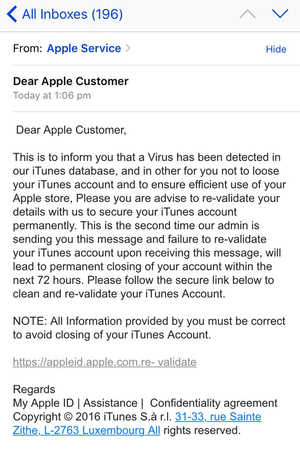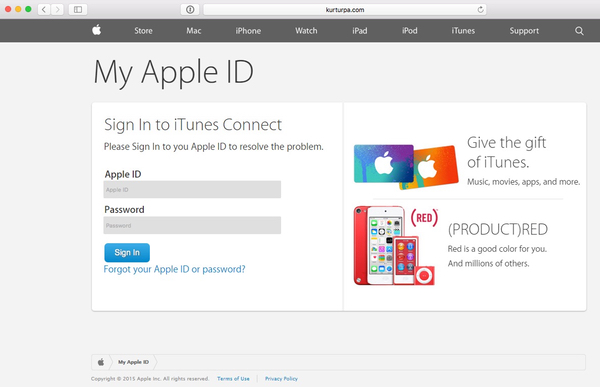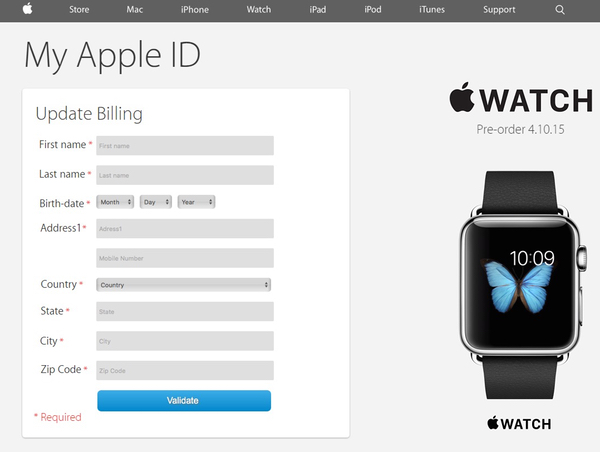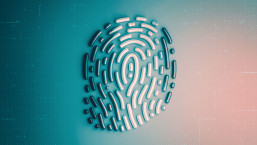Scammers are once again targeting Apple customers in their attempt to hijack accounts and steal payment information.
Security researcher Bryan Campbell raised the alarm, posting on Twitter an email he had been sent which posed as a communication from "Apple Service", asking users to revalidate their account details.
What makes the spammed-out email of interest is that the scammers are claiming that the reason why users needed to reconfirm their account details was that a virus has been found in Apple's iTunes database:

Dear Apple Customer,
This is to inform you that a Virus has been detected in our iTunes database, and in other for you not to loose your iTunes account and to ensure efficient use of your Apple store, Please you are advise to re-validate your details with us to secure your iTunes account permanently. This is the second time out admin is sending you this message and failure to re-validate your iTunes account upon receiving this message, will lead to permanent closing of your account within the next 72 hours. Please follow the secure link below to clean and re-validate your iTunes Account.
NOTE: All information provided by you must be correct to avoid closing of your iTunes Account.
Of course, the message is nonsense. And there is no virus in the iTunes database that requires users to reconfirm their details to Apple.
One would hope that the poor grammar and occasional dodgy spelling would alarm some recipients that the message might not be entirely trustworthy, but there is always the danger that users would be so concerned that they might lose access to their Apple ID account that they would click on the proffered link without properly considering the possible consequences.
What actually happens if you make the mistake of clicking on the link is this: your browser will be redirected to a third-party site that is posing as a login page for iTunes Connect.

The phishing page asks you to enter the email address associated with your Apple ID account and password. Of course, it doesn't actually check whether your login details are correct or not - as I found when I entered entirely bogus credentials for testing purposes.
Instead, it transfers you to an bogus "Update Billing" page, which asks you to enter personal information and (no doubt) will ultimately lead to a request for you to enter your payment card details also.

Remember to always be careful about the links you click on, and verifying that a site that is asking for your password is the real deal. A good password manager can help in this regard, refusing to enter a password into a login form if it doesn't recognise the domain.
If you receive what you believe to be a phishing email purporting to be from Apple, the company asks that you forward it to them at reportphishing@apple.com, including the message's full header information.
Furthermore, if you come across a phishing webpage that you believe your web browser should be blocking, you could do a lot worse than also report it to Google’s Safe Browsing team.
Working as a community we can help protect more vulnerable, less careful internet users from falling for scammers' tricks.




